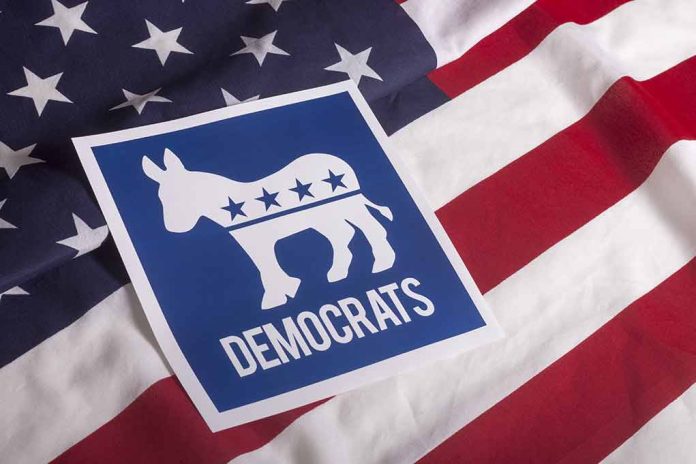
Is the rise in political polarization in America indicative of Democrats being a threat to American democracy?
At a Glance
- Political polarization in America has deepened, with increasing partisan divide.
- A significant portion of Americans hold consistently conservative or liberal views.
- Bipartisan perceptions of threats to democracy vary significantly, depending on the party.
- The view that Democrats pose a threat to democracy stems from contentious policy initiatives and perceived authoritarian tactics.
Deepening Political Polarization
Political polarization has increased significantly over the last two decades, manifesting as a pronounced partisan divide between Republicans and Democrats. The Pew Research Center highlights how ideological overlap has diminished, with 92% of Republicans aligning to the right of the median Democrat and 94% of Democrats to the left of the median Republican.
More Americans now hold consistently conservative or liberal opinions, rising from 10% to 21%. This polarization is especially pronounced among those politically engaged, as “ideological silos” become common, where people primarily interact with those sharing their political views.
Perceptions of Threats and Policy Criticisms
Perceptions of which candidate or party poses a greater threat to democracy are heavily influenced by political affiliation. Some Americans criticize the Democratic Party’s policy initiatives, such as attempts to erase student loans or claims of left-wing domination of major institutions like media and academia. These actions are seen as undermining core democratic values.
“Biden has tried to erase the student loans, and he’s been told by the courts that it’s unconstitutional to do that. He’s weaponized the FBI to get at his political opponents,” says Ernie Wagner.
Furthermore, concerns are raised about the Democratic Party’s approach to key issues, such as their stance on transgender rights, unrestricted access to abortion, and attempting to change structures within the Supreme Court and the Senate.
Democrats’ silence is deafening.
The same woke politicians who cried—for four years straight—that Donald Trump’s every tweet was a “threat to democracy” don’t even recognize the very real threats standing in their own backyard.
Abandoning our American values to the woke mob is…
— Troy Balderson (@Troy_Balderson) April 15, 2024
Democracy’s Resilience and the Role of Voter Engagement
Despite these divisions, there is a belief among some Americans in the resilience of U.S. democracy, asserting that it can withstand potential threats resulting from electoral outcomes. This perspective is supported by the belief in institutional safeguards and a robust democratic system.
Daniel Oliver, an independent voter from Detroit, said, “Making the claim that the other candidate is trying to destroy democracy, it doesn’t really land for me. I think that we have things in place that should safeguard against when you kind of play at destroying democracy. We have other branches of government. We have people that believe in voting.”
The 2024 presidential election is viewed by approximately 75% of American adults as crucial for the future of democracy, with older generations more likely to view it as extremely important. Ultimately, both parties express concern about the future of democracy, making ongoing political debates a decisive factor shaping America’s democratic landscape.
Democrats say Trump is a threat to democracy and U.S. institutions, while they’re pledging to restructure the judiciary wholesale. Do they notice the cognitive dissonance?https://t.co/F9v0Rfnqfu
— Wall Street Journal Opinion (@WSJopinion) October 29, 2024
Sources:
- https://www.nytimes.com/2022/09/17/us/american-democracy-threats.html
- https://www.pewresearch.org/politics/2014/06/12/political-polarization-in-the-american-public/
- https://www.ap.org/news-highlights/spotlights/2024/majority-of-us-adults-say-democracy-is-on-the-ballot-but-they-differ-on-the-threat-ap-norc-poll/
- https://thefederalist.com/2024/11/12/voters-decided-democrats-are-the-biggest-threat-to-democracy/?utm_source=rss&utm_medium=rss&utm_campaign=voters-decided-democrats-are-the-biggest-threat-to-democracy










